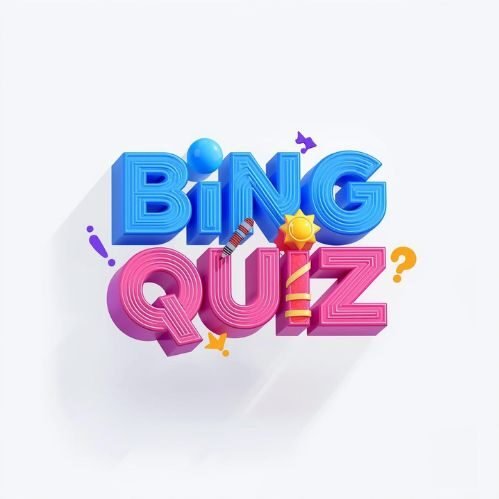It’s wild to think about vaccines, those tiny jabs we often take for granted today, almost disappearing entirely back in the 1800s. Today, they’re hailed as medical marvels, but the journey there wasn’t smooth, and in fact, it was downright contentious. Did you know there were serious pushbacks so intense that some wanted to ban vaccines altogether? It sounds counterintuitive now, but the debates surrounding vaccines in the 19th century reveal a lot about society’s fears, mistrust, and the clash between personal freedoms and public health.
The Early Days of Vaccination: Hope Meets Suspicion
Edward Jenner’s 1796 discovery of using cowpox material to prevent smallpox wasn’t just groundbreaking—it was revolutionary. Smallpox had plagued humanity for centuries, leaving scars both physical and emotional. Jenner’s method was simple yet ingenious, but not immediately embraced. Imagine hearing about an injection that involves matter from cow sores—would you trust it?
In the 1800s, medicine wasn’t like it is now. Scientific literacy was limited. Many people looked at vaccines through a lens shaped by superstition, religious beliefs, and lack of understanding. And then factor in a very different political and social climate: governments starting to mandate vaccination faced fierce opposition. People questioned authority and worried about bodily autonomy. This clash wasn’t just medical; it was deeply personal and political.
Why Were Vaccines Almost Banned?
The idea to ban vaccines emerged from several sources. Some groups believed that vaccines were dangerous and unproven. Early vaccination techniques, lacking today’s sterilization standards, sometimes caused infections or worse. Rumors and misinformation spread fast, leading to widespread skepticism.
One example stands out: the Anti-Vaccination League in Britain, formed in the late 1800s. They fought compulsory vaccination laws because they saw these as governmental overreach infringing on personal rights. Complaints about vaccine injuries, from scarring to allergic reactions, only added fuel to the fire.
On top of that, some religious figures proclaimed that vaccination interfered with divine will. This wasn’t a fringe idea at the time; it had significant traction in certain communities, where faith played a massive role in health decisions.
Legislation like the Vaccination Act of 1853 in Britain, which mandated smallpox vaccination for infants, triggered riots and protests. People couldn’t comprehend why they were forced to subject their children to what felt like an unknown and invasive procedure.
The Role of Misinformation and Fear
Would you trust the government or medical professionals if you had barely any knowledge about germs or immunity? Fear is a powerful weapon, and misinformation was abundant, often spread through newspapers and pamphlets. Stories about vaccine-related injuries circulated loudly. Some claimed vaccines caused other diseases or even madness.
This atmosphere of suspicion wasn’t just about vaccines but growing anxieties about modernization and scientific change. When science challenges long-standing beliefs, it often faces resistance. It’s a timeless story—change can be terrifying.
Government Responses and Public Backlash
Faced with growing resistance, governments had to make tough decisions. Some officials pushed forward, emphasizing the overwhelming evidence that vaccination saved lives. Others tried compromise, offering exemptions and “conscientious objector” clauses to quell unrest.
In Britain, legal battles ensued. The 1867 Vaccination Act tightened requirements and enforced penalties for refusal. This only intensified protests. Groups even proposed a total ban on mandatory vaccination!
Interestingly, despite the turmoil, vaccination gradually became normalized because smallpox was so deadly and visibly devastating. The risk of skipping vaccination became clearer as outbreaks continued.
Lessons from the 19th Century Vaccine Debate
Looking back, the 1800s vaccine controversy teaches us how social context shapes health decisions. It’s easy to see modern vaccine hesitancy as a new phenomenon, but distrust has deep roots. Understanding those roots reveals society’s ongoing negotiation between individual rights and collective safety.
Moreover, it highlights the importance of transparent communication by public health authorities. When people feel uninformed or threatened, resistance grows. Medical professionals today still grapple with some of the same challenges in building trust.
What This History Means for Us Today
With COVID-19 vaccines and ongoing debates about immunizations, the parallels are striking. We’ve learned that mandates without empathy generate backlash. Addressing concerns honestly and respecting individual perspectives does more good than forcing compliance.
Interestingly, history suggests that education and engagement, not just laws, foster vaccine acceptance. The anti-vaccine movements of the 1800s vanished only after people saw the unavoidable benefits and understood the science better.
Feeling curious about how vaccine policies evolved over time? The story is vast and layered, packed with fascinating details and insights into human nature, politics, and science.
If you enjoy digging into stories that reveal surprising twists in history, you might appreciate testing your knowledge with the latest Bing Homepage Quiz—it’s a fun way to keep sharp and curious.
Trusted Resources for Vaccine History and Science
For anyone wanting a deeper dive into vaccine history, the CDC offers a well-rounded overview of vaccine development and rollout through the centuries. Their vaccine resources break down myths and truths, providing context to today’s vaccination landscape.
The World Health Organization also maintains thorough information about vaccination efforts worldwide, explaining how vaccines continue to protect communities globally. Check out their official vaccine and immunization page for global perspectives.
Taking the time to explore these trusted sources can arm you with knowledge to cut through misinformation and appreciate the profound impact vaccines have had.
Final thoughts: A Hard-Earned Victory for Public Health
The 19th century almost witnessed the demise of vaccines because of fear, suspicion, and resistance to change. That these life-saving tools survived and thrived is a testament to resilience—both scientific and social. Vaccines didn’t just protect bodies; they also transformed ideas about trust, authority, and community responsibility.
Remembering this history adds depth to our modern dialogues around vaccinations. It challenges us to be patient, to listen, and to engage critically—not only with the science but with the fears and hopes that shape human choices.
If you want to explore more intriguing layers of history and science, why not take a moment with the Bing weekly quiz on historical health topics? It’s a clever way to connect facts and stories with a bit of fun.
Disclaimer: This article is intended for informational purposes only and does not substitute professional medical advice. Please consult qualified health professionals regarding vaccination decisions.

